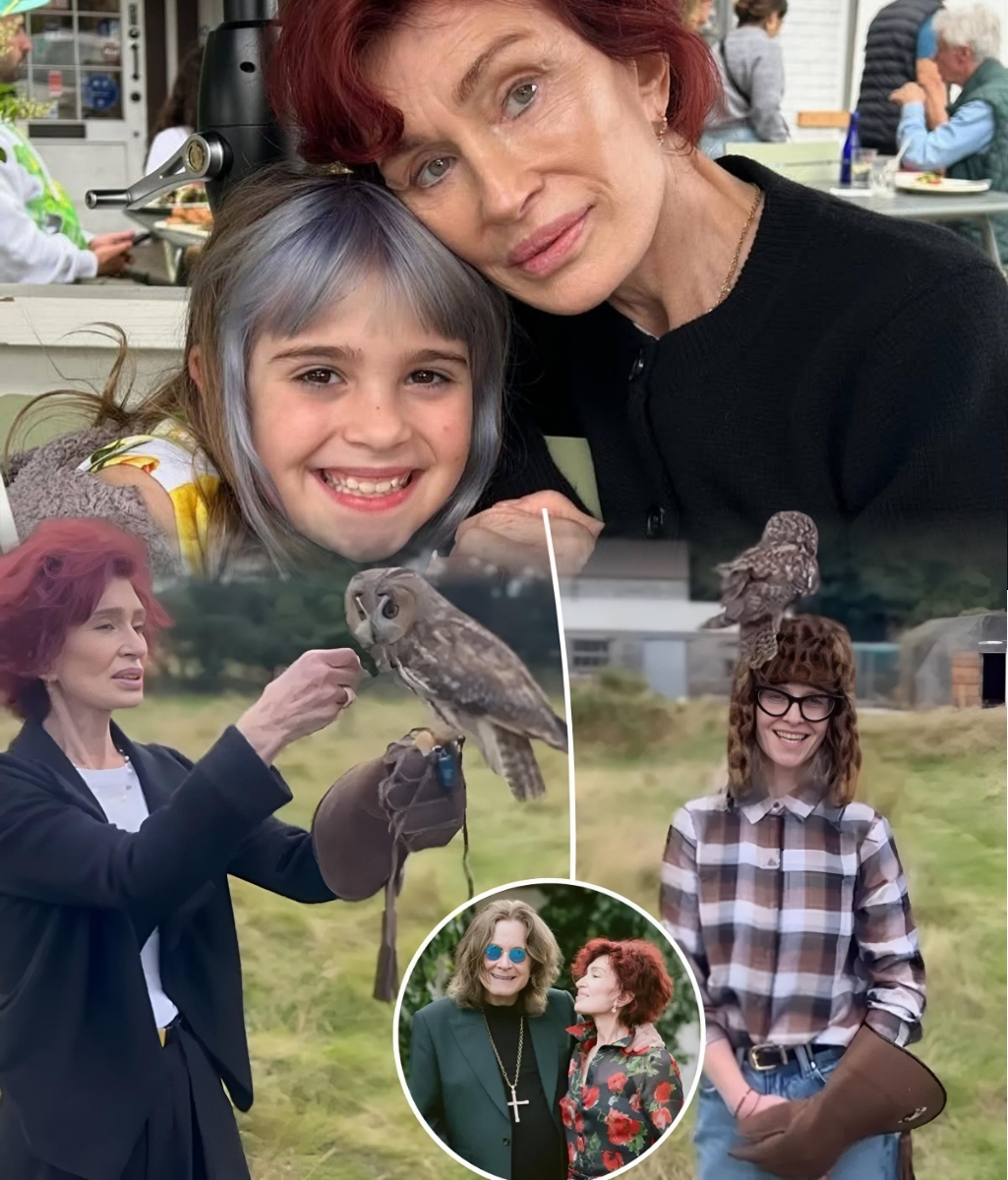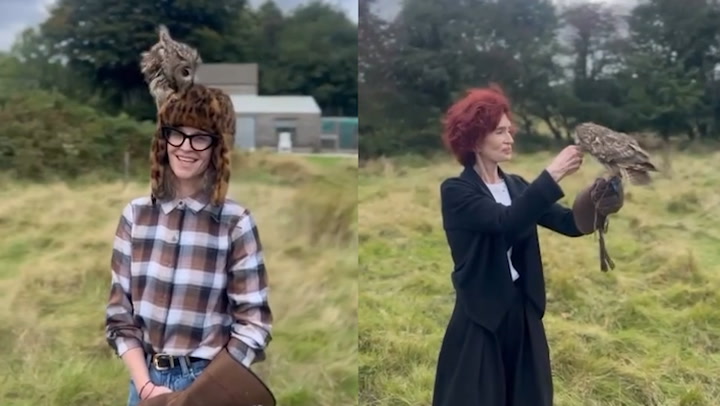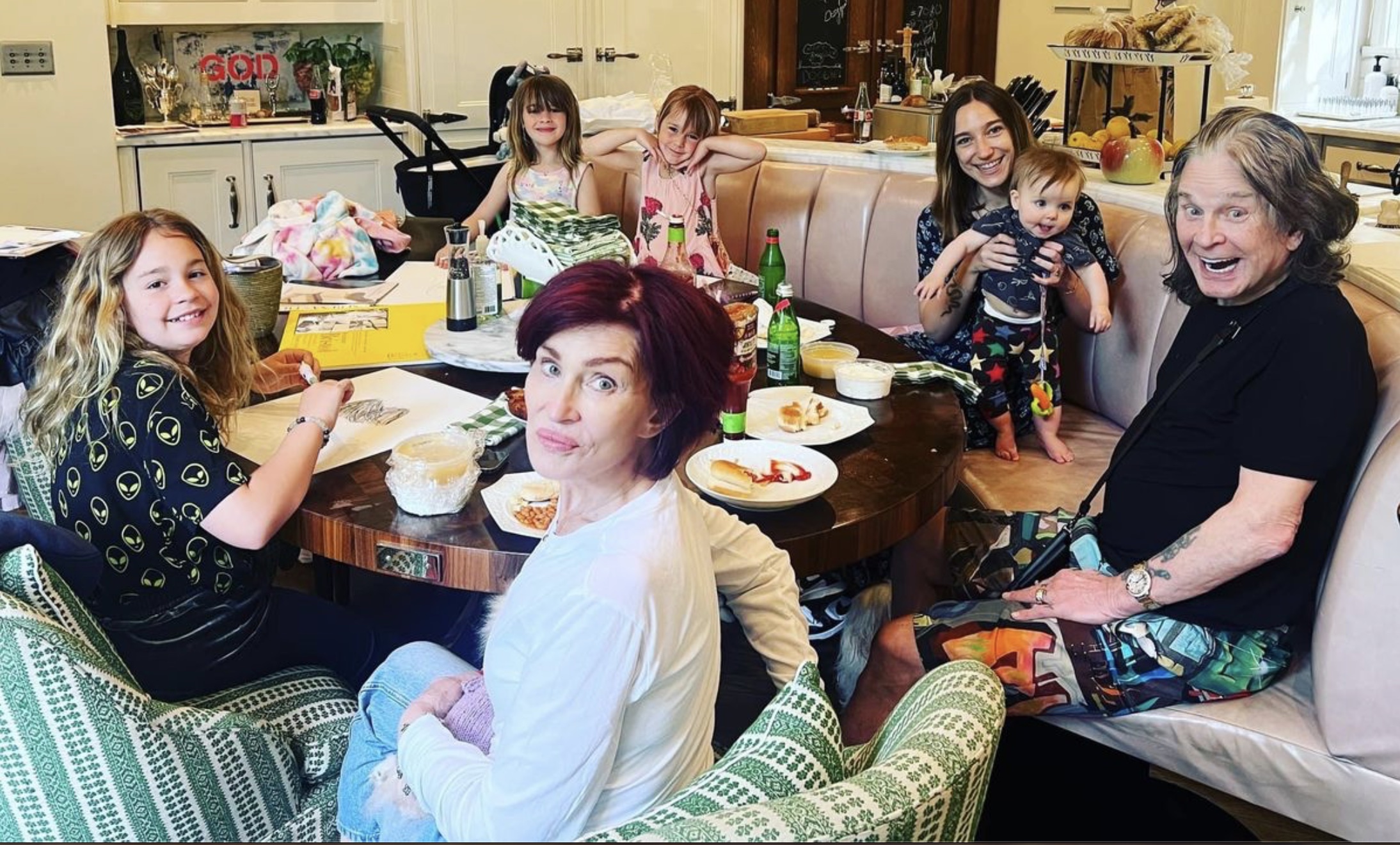
SHARON OSBOURNE FINDS UNEXPECTED HEALING IN FALCONRY AFTER OZZY’S DEATH
In the quiet of the English countryside, grief has taken an unexpected turn for Sharon Osbourne. Since the passing of her husband, legendary rocker Ozzy Osbourne, on July 22, waves of sorrow have swept through the family. Yet in the midst of loss, something unusual has brought a fragile but undeniable light back into their lives: falconry.
The moment unfolded tenderly, captured on video by Kelly Osbourne. Standing under a wide sky, Kelly revealed a sight few could have anticipated. An owl, calm yet commanding, perched gently on her head. Its wings beat softly against the summer air, like a fragile promise that life still moves, still breathes, even in the wake of heartbreak.

Kelly, smiling through the weight of grief, turned to her mother. “All right, mom. Put your hand out. Don’t have anything to give you. Come on,” she coaxed. Sharon, hesitant at first, extended her arm. Then, with sudden grace, the bird lifted and glided toward her. For a moment suspended in time, laughter and awe replaced sorrow. Sharon’s eyes lit up, her face breaking into a smile that grief had long concealed.
Kelly later shared the clip with a simple but heartfelt caption: “Today I introduced my mom to falconry and she loved it. Thank you for putting a smile on my mom’s face, too.”
The video quickly spread across social media, striking a chord with fans who have followed the Osbourne family for decades. For many, it was more than just a mother and daughter trying something new — it was a glimpse into the delicate ways families find healing after tragedy.
Since Ozzy’s passing, the Osbournes have leaned on one another to navigate the emptiness left behind by his absence. Sharon, who had been at her husband’s side through decades of music, illness, and chaos, has spoken openly about how difficult the days have been without him. Kelly, too, has shared her struggles, admitting that the silence left in her father’s wake has been almost unbearable.

But falconry — a centuries-old practice of working with birds of prey — has offered something unexpected: solace. “I never thought I would find my smile again through birds,” Kelly confessed. “But I did.” For her, guiding her mother into this new world has been more than a pastime. It has been an act of love, a way to remind Sharon that even in loss, there are moments of wonder still waiting.
The symbolism is hard to miss. Birds, with their wings and freedom, have always represented transcendence, a lifting of the soul beyond earthly burdens. For Sharon, the owl resting on her arm was more than a bird — it was a sign that laughter could return, that joy could still find its way into her days. For Kelly, watching her mother smile again was a reminder that grief, while heavy, does not erase the possibility of light.
The Osbourne family has lived much of its life in public view, from reality television to music tours. Yet this quiet moment in the countryside was perhaps their most human and relatable — a family, broken by loss, still finding unexpected ways to heal.
As the owl took flight and returned again, the message was clear: love does not vanish with death. It finds new forms, new wings, carrying forward in ways no one can predict. For Sharon Osbourne, falconry may have begun as an experiment, but it has become something deeper — a small, soaring reminder that even in the deepest grief, life still holds room for joy.
Even in loss, love finds wings.